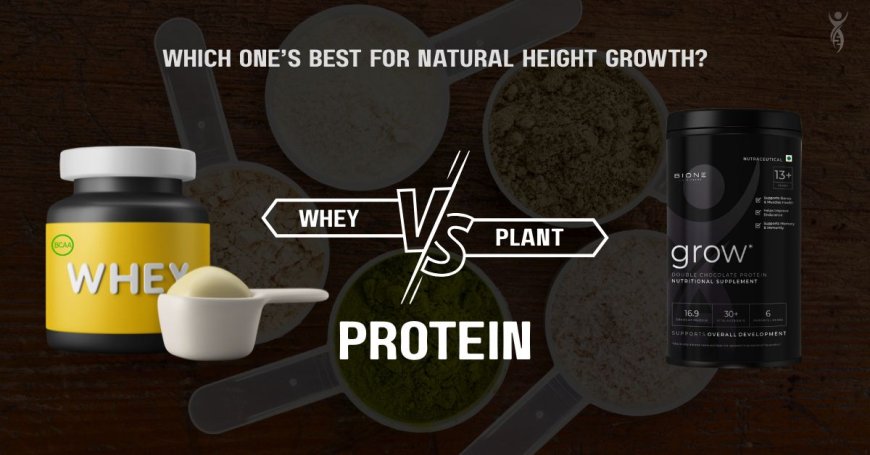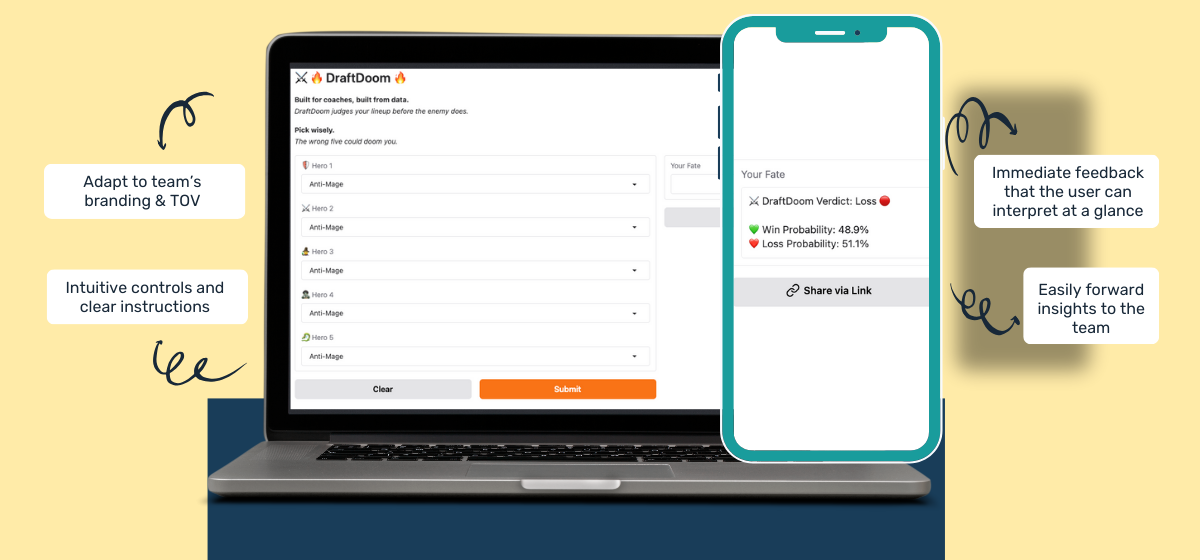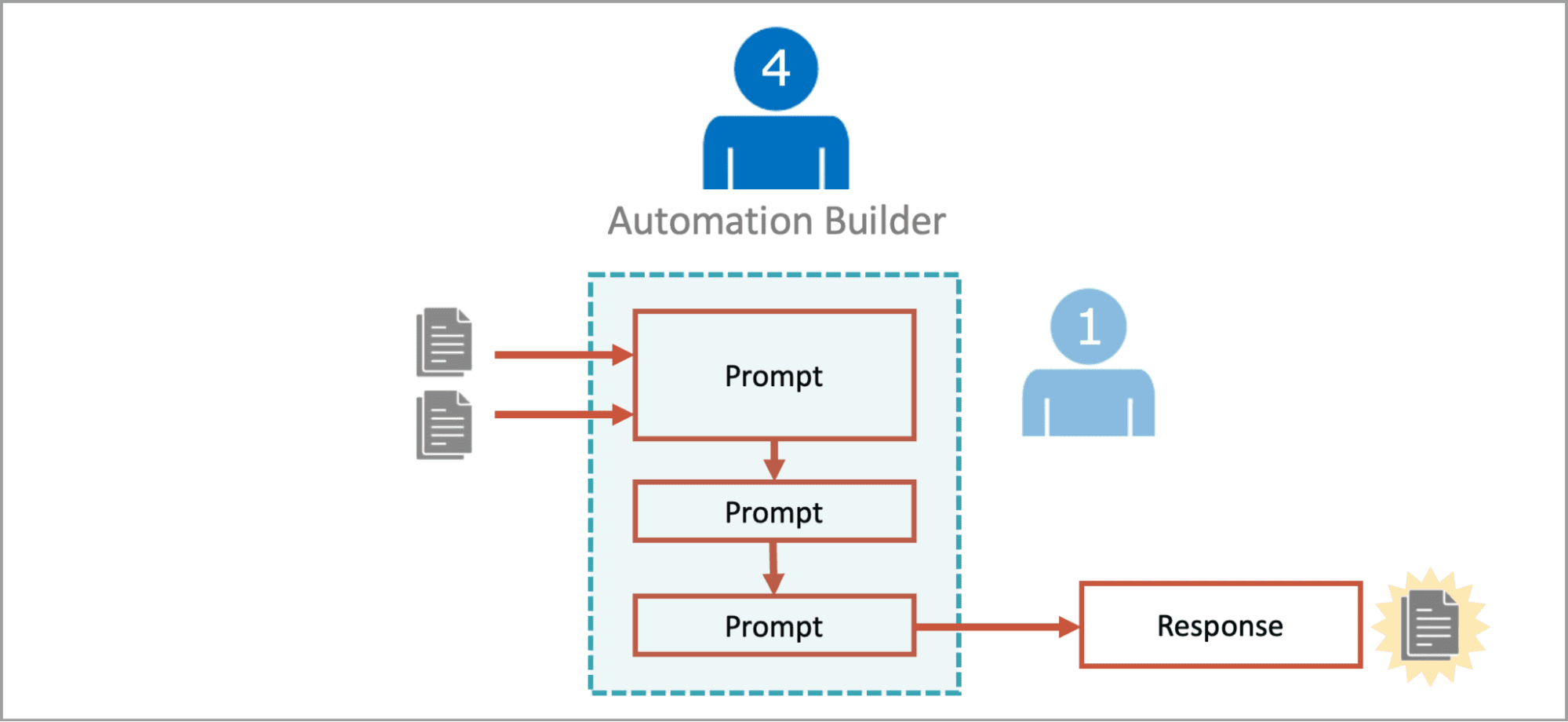Whey vs. Plant Protein: Which One’s Best for Natural Height Growth?
Uncover the pros and cons of whey vs. plant protein and find out which height growth protein powder supports natural development best during teen years.

When it comes to supporting natural growth during adolescence, protein supplements often come into play. But with so many options available, parents and teens alike face a common question — Is whey protein better than plant-based protein for height growth?
Both options offer unique benefits, and understanding the difference can help you choose the right type of height increase protein powder to support your body’s needs.
Let’s explore how whey and plant protein stack up when it comes to building bones, muscles, and overall teen development.
Why Protein Matters for Height Growth
Before we dive into the types, let’s quickly revisit why protein is crucial during teenage years:
-
Builds and repairs muscle tissues
-
Strengthens bones
-
Supports the production of growth-related hormones
-
Enhances the immune system
-
Helps maintain energy levels during growth spurts
Without sufficient protein, teens may fall short of their full height potential, especially during their growth spurts.
What Is Whey Protein?
Whey protein is a complete protein derived from milk during the cheese-making process. It contains all nine essential amino acids and is known for its high biological value, which means it’s absorbed and utilized efficiently by the body.
Pros of Whey Protein:
-
Rapid absorption for quick muscle recovery
-
Rich in branched-chain amino acids (BCAAs)
-
Promotes lean muscle mass
-
Supports bone density due to its calcium content
Cons of Whey Protein:
-
May not suit lactose-intolerant teens
-
Often includes artificial flavorings or sweeteners
-
Animal-derived, not vegan-friendly
What Is Plant Protein?
Plant protein is sourced from plants like peas, brown rice, soy, hemp, and quinoa. While some plant proteins are incomplete on their own, many modern plant-based powders combine different sources to form a complete amino acid profile.
Pros of Plant Protein:
-
Easier on digestion
-
Naturally high in fiber and antioxidants
-
Vegan-friendly and allergy-safe (when soy-free)
-
Environmentally sustainable
Cons of Plant Protein:
-
Absorbs slower than whey
-
May require larger servings for the same effect
-
Some options lack a complete amino acid profile
Whey vs. Plant Protein – Nutritional Comparison
Here’s how both stack up nutritionally for teens focusing on height growth:
|
Feature |
Whey Protein |
Plant Protein |
|
Source |
Milk (Animal-based) |
Peas, rice, soy, hemp (plant-based) |
|
Digestibility |
Very high |
Moderate to high (varies) |
|
Amino Acid Profile |
Complete |
Often complete (blends) |
|
Calcium Content |
High |
Low to moderate |
|
Fiber |
None |
Contains fiber |
|
Lactose-Free |
Not always |
Always |
Which Is Better for Height Growth?
Both proteins have their place in a teen’s growth journey. The choice between whey and plant protein often depends on:
1. Digestion & Sensitivity
If your teen is lactose intolerant or has dairy sensitivities, plant protein is the better choice. It’s gentler on the gut and less likely to cause bloating.
2. Muscle Recovery & Bone Strength
For teens involved in sports or physical activities, whey protein can provide fast recovery and support lean muscle building. Its higher calcium content also benefits bone development — key for height.
3. Ethical & Dietary Preferences
For a high protein vegan diet for height growth, Vegan or vegitarians teens should opt for plant protein, especially blends containing pea, rice, and hemp to ensure a full amino acid profile.
4. Sustainability Concerns
Plant-based proteins win when it comes to environmental impact. They’re produced with fewer resources and lower carbon emissions.
Using Protein Powder For Height Growth Wisely
Regardless of which protein you choose, it’s important to use it as part of a balanced diet, not a substitute for real food.
Tips for Safe Supplement Use:
-
Choose products specifically made for teens
-
Mix with milk, water, or smoothies
-
Use after workouts or as a breakfast booster
-
Avoid products with artificial additives
For example, some of the best protein for height gain combine both whey and plant sources to offer the best of both worlds — complete nutrition, good digestibility, and muscle support.
Conclusion: Choose What Suits Your Body and Lifestyle
There’s no one-size-fits-all when it comes to protein for teens. Both whey and plant protein have unique strengths that support natural height growth and overall development. The key is finding what suits your teen’s body, lifestyle, and preferences.
Whether you go with fast-absorbing whey or gut-friendly plant protein, the goal is to ensure complete and consistent protein intake. With the right guidance and smart supplementation, teens can thrive during their growth years.



















































































































![Best Areas in Gurgaon for Investment - PropXchange Property Listings [2025 Guide]](https://newsquo.com/uploads/images/202505/image_430x256_6819c3632026c.jpg)







































